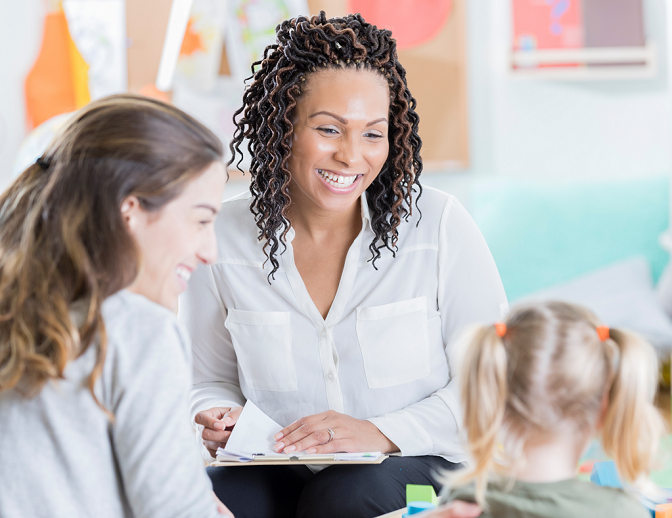In the intricate web of a child’s educational journey, the partnership between parents and teachers stands as a cornerstone for success. The relationship forged between these two crucial influencers plays a pivotal role in shaping a child’s academic achievement, personal development, and overall well-being. In this blog post, we delve into the importance of fostering strong relationships between parents and teachers, exploring the profound impact this collaboration can have on a child’s educational experience.
1.Creating a Unified Support System
When parents and teachers work together, they form a unified support system for the child. This collaboration ensures that the child receives consistent guidance and encouragement both at home and in the classroom, reinforcing a sense of stability and confidence.
2.Enhancing Academic Performance
Open communication between parents and teachers allows for a deeper understanding of a child’s strengths, weaknesses, and learning style. This knowledge empowers both parties to tailor educational strategies, interventions, and support systems that cater to the unique needs of the child, ultimately enhancing their academic performance.
3.Fostering a Positive Learning Environment
A positive and collaborative relationship between parents and teachers contributes to the creation of a supportive learning environment. When parents and teachers share common goals and values, children are more likely to feel secure, motivated, and engaged in their studies.
4.Early Identification of Challenges
Regular communication enables early identification of any challenges a child may be facing—whether academic, social, or emotional. Timely intervention, facilitated by a strong parent-teacher partnership, allows for proactive measures to address issues, and prevent them from escalating.
5.Promoting Consistent Discipline and Expectations
Consistency in discipline and expectations is crucial for a child’s development. When parents and teachers maintain open lines of communication, they can align their approaches to discipline and reinforce consistent expectations, promoting a harmonious and structured learning environment.
6.Encouraging Parental Involvement

A positive relationship between parents and teachers encourages increased parental involvement in a child’s education. This involvement extends beyond academic support to include participation in school events, volunteering, and engaging in discussions about the child’s progress.
7.Building Trust and Rapport
Trust is the foundation of any successful relationship. When parents and teachers build a trusting rapport, they create an atmosphere where open communication, collaboration, and problem-solving can thrive. Trust fosters a sense of partnership, essential for navigating the challenges of a child’s educational journey.
8.Understanding the Whole Child
While teachers have insights into a child’s behaviour and performance at school, parents contribute valuable insights into their child’s life outside the classroom. A holistic understanding of the child—both academically and personally—can only be achieved through the combined perspectives of parents and teachers.
9.Supporting Social and Emotional Development
A child’s social and emotional development is as vital as their academic progress. When parents and teachers collaborate, they can collectively address the child’s emotional needs, social interactions, and overall well-being, fostering a healthy and balanced developmental journey.
10.Effective Problem-Solving
Inevitably, challenges may arise during a child’s educational journey. Whether related to academic struggles, behavioural issues, or personal concerns, a strong parent-teacher relationship facilitates effective problem-solving. Together, parents and teachers can explore solutions and implement strategies to overcome hurdles.
11.Promoting a Growth Mindset
A growth mindset, emphasising the belief that abilities can be developed through dedication and hard work, is nurtured when parents and teachers collaborate. Encouraging a growth mindset at home and in the classroom contributes to a resilient and motivated approach to learning.
12.Enhancing Communication Skills
As parents and teachers communicate regularly, they model effective communication skills for the child. This not only reinforces the importance of clear and respectful communication but also sets an example for positive interpersonal relationships.
13.Celebrating Achievements, Big and Small
When parents and teachers celebrate a child’s achievements, whether big or small, it reinforces the idea that education is a shared endeavour. Recognition from both home and school creates a sense of accomplishment and motivation for the child.
14.Preparing for Transitions
Smooth transitions, whether from one grade to another or from primary to secondary school, are facilitated by a collaborative relationship between parents and teachers. This partnership ensures continuity in support and guidance during crucial transitional phases.
15.Modelling Lifelong Learning
By witnessing the collaborative efforts of parents and teachers, children learn the importance of lifelong learning and the value of working together towards common goals. This modelling lays the groundwork for a positive attitude towards education that extends far beyond the school years.
In the intricate dance of education, the partnership between parents and teachers is the melody that guides a child’s journey. By recognising the importance of this relationship, fostering open communication, and working collaboratively, parents and teachers can create an environment where children not only excel academically but also thrive emotionally and socially. The impact of a strong parent-teacher relationship ripples through a child’s educational experience, shaping them into confident, resilient, and motivated learners poised for success.

